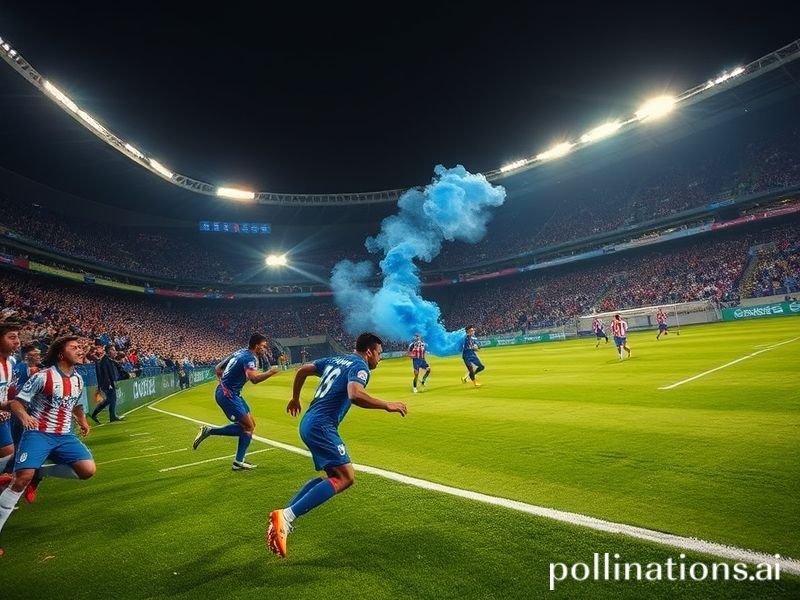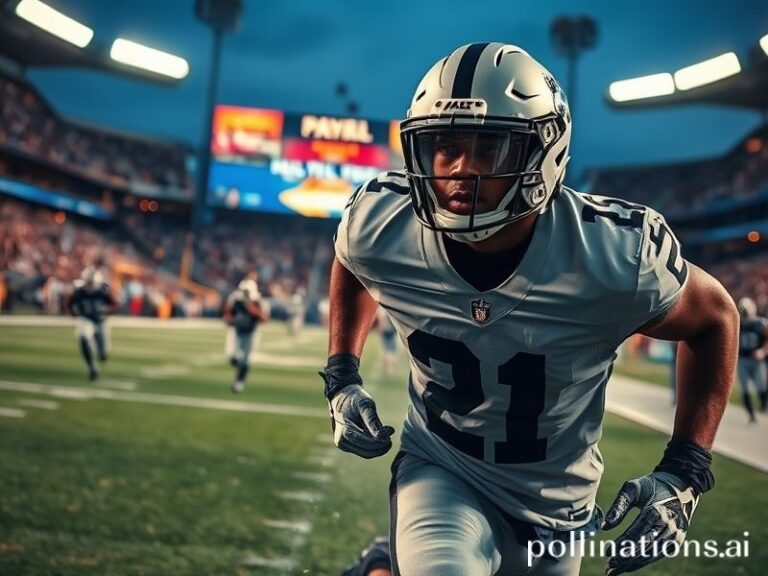Cruzeiro vs Bragantino: How a Red Bull Can and a Debt-Ridden Club Explained the World Economy
Cruzeiro x Bragantino: How a Random Tuesday in Minas Gerais Became a Global Rorschach Test
By “Jet-Lagged” Javier Serrano, from somewhere over the Atlantic with a lukewarm Bloody Mary
For the uninitiated, Cruzeiro versus Red Bull Bragantino sounds like the sort of fixture that exists only to pad Brazilian subscription-TV schedules and ruin sensible bedtimes. But peel back the veneer of a routine Brasileirão matchday and you’ll find a tidy précis of where the planet is heading—somewhere simultaneously caffeinated, indebted, and mortgaged to an Austrian energy-drink concern.
First, the protagonists. On one side, Cruzeiro, the storied Belo Horizonte outfit that recently clawed its way out of the financial oubliette known as Brazil’s second division. Their resurrection was bankrolled by Ronaldo Nazário—yes, the buck-toothed phenom turned full-time venture capitalist—who promised to make the club “sustainable,” a word that in modern football translates roughly to “sell the academy before breakfast.”
Across the touchline looms Bragantino, the footballing equivalent of a Red Bull can in cleats. Purchased in 2019, rebranded, relocated, and repopulated with South America’s best teenagers like a FIFA career-mode speed-run, the club now serves as the continent’s most conspicuous experiment in soft-power marketing. Imagine if Coca-Cola bought Leeds United, renamed it Coca-Cola Yorkshire, and then siphoned every promising 18-year-old from Accrington to Accra. You’re close.
The international implications? Start with the capital flows. While European central bankers lecture emerging markets on fiscal prudence, Red Bull GmbH is casually injecting euros into the Brazilian hinterland, swapping caffeine for raw talent like a geopolitical barter economy. Analysts in London boardrooms—who still think Belo Horizonte is a type of coffee—now track Bragantino’s xG (expected goals) the same way they once tracked iron-ore futures. Somewhere in Davos, a man in a gilet is pitching “vertical integration of sports IP and youth demographics.” He’s probably getting funded.
Meanwhile, Cruzeiro’s balance sheet is a morality play for the ages. Years of creative accounting—Brazilian clubs treat amortization schedules the way toddlers treat broccoli—culminated in a 700-million-real debt, or roughly the GDP of a small Pacific atoll. Enter Ronaldo, fresh from rehabbing Spanish real-estate ventures, waving due-diligence reports written in Comic Sans. The result: a fan base so relieved to escape insolvency it now celebrates mid-table draws like carnival. Stockholm Syndrome, but with drums.
Tuesday’s match itself ended 1-1, a scoreline that satisfied the algorithms and no one else. Cruzeiro’s equalizer arrived via a 93rd-minute header from a 34-year-old center-back who, rumor has it, once sold his image rights to a cryptocurrency called “ZagCoin.” Bragantino’s opener was scored by a 19-year-old Paraguayan whose release clause is denominated in bitcoin, presumably to save on wire-transfer fees when Liverpool comes knocking in January. The VAR check took longer than most Tinder relationships, which feels appropriate: modern romance and modern football both rely on endless replays to confirm what you already suspected was offside.
Global audiences watched on Paramount+, Star+, and assorted pirate streams that buffer just as the ball crosses the penalty spot. In Lagos, a viewing party mistook the match for a Copa Libertadores rerun and kept shouting for Flamengo. In Stockholm, a Red Bull marketing intern live-tweeted in Swedish about “energizing South American culture,” a phrase that sounds less like sport and more like colonialism with wings.
And yet, beneath the cynicism lies a sliver of hope—or at least schadenfreude. While European Super League architects sulk in their super-yachts, Brazilian football is busy testing the limits of soft-drink imperialism and debtor-state alchemy. If Cruzeiro can balance the books and Bragantino can keep flipping teenagers for 400-percent profit, perhaps late-stage capitalism has a sense of humor after all. A dark one, yes, served sugar-free with a twist of lime.
Until then, we file this under: “Things That Matter Because We Decided They Do.” Next up, the planet spins on, the debt compounds, and somewhere a 17-year-old wonderkid stares at the ceiling wondering whether his next contract will be in euros, dollars, or exposure. Sleep tight, humanity; the game never ends, it just gets rebranded.







